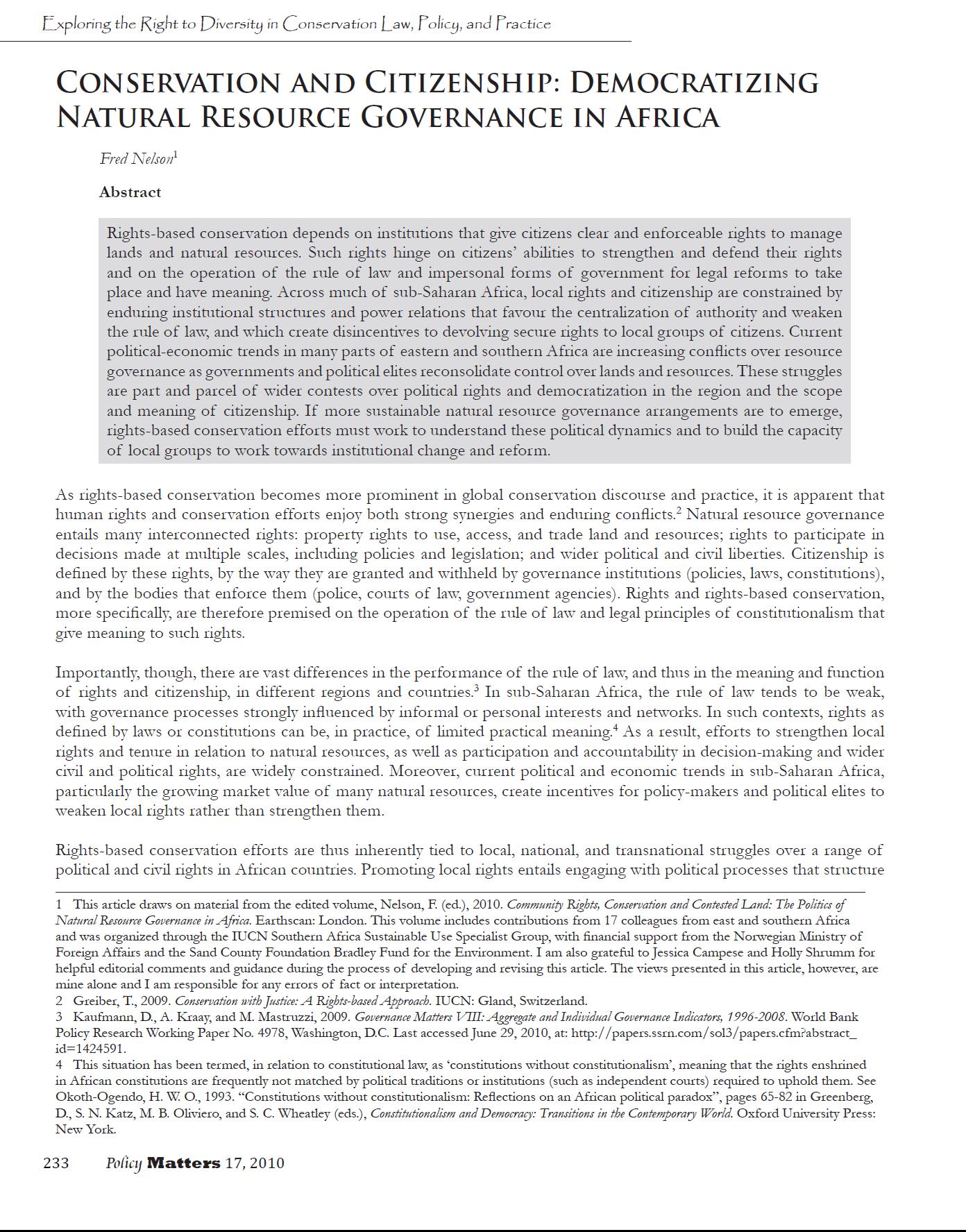Resource information
Rights-based conservation depends on institutions that give citizens clear and enforceable rights to manage lands and natural resources. Such rights hinge on citizens’ abilities to strengthen and defend their rights and on the operation of the rule of law and impersonal forms of government for legal reforms to take place and have meaning. Across much of sub-Saharan Africa, local rights and citizenship are constrained by enduring institutional structures and power relations that favour the centralization of authority and weaken the rule of law, and which create disincentives to devolving secure rights to local groups of citizens. Current political-economic trends in many parts of eastern and southern Africa are increasing conflicts over resource governance as governments and political elites reconsolidate control over lands and resources. These struggles are part and parcel of wider contests over political rights and democratization in the region and the scope and meaning of citizenship. If more sustainable natural resource governance arrangements are to emerge, rights-based conservation efforts must work to understand these political dynamics and to build the capacity of local groups to work towards institutional change and reform.


